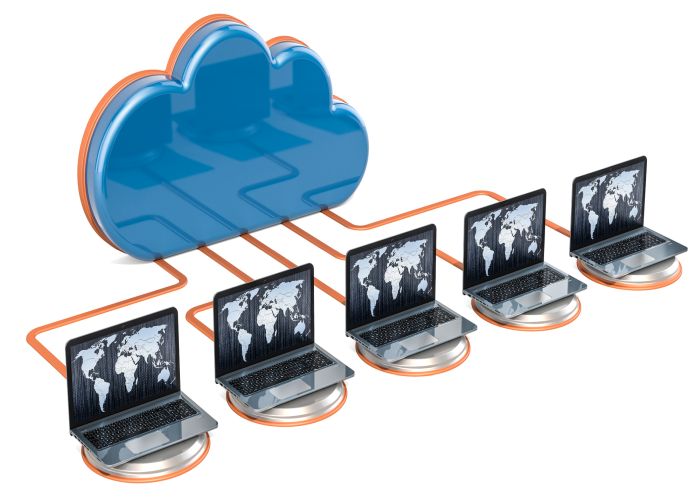In this article, we will explain the outline, work content, required skills, demand, future potential, etc. of cloud engineers.
In the last few years, the word “cloud” has become quite familiar to our lives.
The use of cloud services such as online storage has become widespread among individuals, and cloud computing is steadily increasing, especially in companies.
And the demand for cloud engineers to cope with this rapidly increasing “cloudization” is increasing, and it is also attracting attention as an engineer’s career.
Let’s take a concrete look at cloud engineers.
table of contents
- 1. What is a cloud engineer?
- 2. What the cloud engineer does
- 3. What skills are required of cloud engineers?
- 4. Demand and future potential of cloud engineers
- 5. Summary
1. What is a cloud engineer?
1.1 Born due to changes in the infrastructure environment accompanying the cloud era
A cloud engineer is an engineer who designs, builds, operates, and maintains infrastructure such as servers and networks in a cloud environment .
Cloud (Cloud Computing) is a form of using necessary functions at a destination connected to a network via the Internet.
By using this cloud, “clouding” has the advantages of speeding up installation, reducing costs, and reducing operational load. In the past, infrastructure engineers and network engineers had to spend time on network and server installation and management. The work load such as is also lightened.
Cloud engineers are often involved in cloud computing, and need to have knowledge and experience around infrastructure and be familiar with the cloud.
From such a trend, it seems that infrastructure engineers are also required to acquire cloud knowledge and technology and become cloud engineers who are strong in “infrastructure + cloud”.
It can be said that cloud engineers were born from the changes in the infrastructure environment accompanying the cloud era.

2. What the cloud engineer does
Cloud engineers are engaged in work in the following cloud environment *, and the work content may differ slightly depending on the environment.
Types of cloud environment *
Public cloud: Cloud service that can rent the infrastructure environment required for system operation
Private cloud: Cloud that is built and operated exclusively by the company
Hybrid cloud: Cloud environment that uses both public cloud and private cloud
2.1 Infrastructure design on the cloud
The important work of a cloud engineer is design work on the cloud.
The public cloud does not require the physical design of your own data center, but we will design by taking advantage of the features and services of the cloud service you use .
In the hybrid cloud, it is also necessary to design the connection part that connects the data center and the cloud, and it will be useful to have knowledge of the network because design information is added to routers and switches and router installation work is required. ..
There are various cases such as migration work from on-premises to the cloud and launching a new system on the cloud, but in each case, it is important to design considering the high availability * and scalability * that are the characteristics of the cloud. Will be.
In addition, each cloud service provides learning resources and tools to support your design.
For example, on AWS, the AWS Well-Architected Tool allows you to check whether the design is in line with the optimal use of AWS.
High Availability *
Obtain higher reliability by keeping the system running without stopping due to a failure or the like.
Extensibility *
Obtain higher processing performance by distributing processing
2.2 Building the cloud
We will build a system environment on the cloud by using various functions provided by the cloud service.
When creating a virtual server , you set the server location, network settings, load balancer for redundancy and load balancing, backup, and so on.
In addition, cloud storage settings for data sharing and storage , virtual network construction, and selection of optimal database services are performed.
In addition, infrastructure may be coded to simplify infrastructure management, change management, and improve efficiency by automating infrastructure construction .
2.3 Cloud operation and maintenance
As with on-premises, it is the job of the cloud engineer to operate and maintain after construction.
We have tasks such as tuning for stable operation of various services, management of operating costs , version upgrades of OS / middleware / applications, patch application , authority management , and system monitoring .
3. What skills are required of cloud engineers?

3.1 Knowledge of public cloud services
Engineers involved in cloud operations need not only basic knowledge of the cloud, but also knowledge and skills related to public cloud services such as AWS .
Various cloud services provide certifications by level and specialty, as well as a wealth of training and learning sources .
Qualifications allow you to systematically study services and architectures that you do not normally use, so it is a good idea to try them.
In recent projects for cloud engineers, it seems that the number of businesses dealing with typical public cloud services such as AWS (Amazon Web Services) , Azure (Microsoft Azure) , and GCP (Google Cloud Platform) is increasing rapidly.
Even if you have no work experience, holding a certification will be useful as a proof of knowledge and skills for such cases.
Cloud trends are constantly changing as companies become more “cloud-first”.
One of the skills you need to know is to grasp and understand the latest trends in container technology, serverless computing, security and more.
3.3 Knowledge and experience of cloud technology
3.3.1 Server virtualization
Virtual server , which is the most basic of the cloud environment Understand the procedures and optional functions for using a virtual server
on the cloud, knowledge about server virtualization technology, and the advantages and disadvantages of server virtualization.
3.3.2 Network virtualization
It is a good idea to acquire the following knowledge and skills regarding network virtualization technology. -A technology that divides the network to enable the exchange of limited data in
VLAN (Virtual LAN) -VPN (Virtual Private Network) Makes a private connection like a dedicated line to realize a network connection method with a high security level. Technology – NFV (Network Functions Virtualization) Technology that implements network functions as application software on a virtual server in order to flexibly respond to configuration changes of network devices.
Also, for VPN services provided by major cloud services
- Amazon VPC (Virtual Private Cloud)
- Azure VPN Gateway
- Google Cloud VPN
And so on.
3.3.3 Database technology
Each cloud service provides various database services.
- Free RDBMS such as MySQL and Postgre
- Paid RDBMS such as Oracle, Microsoft SQL Server
- Database services provided by each cloud service (Amazon RDS, Azure SQL Database, Google Cloud SQL, etc.)
- NoSQL (database that is not a relational database)
RDBMS is most often used, but for big data analysis and IoT, a distributed database such as NoSQL that distributes a large amount of data and performs high-speed processing is used.
By understanding the characteristics of each database, acquiring knowledge, and selecting a database according to the purpose of use, you can build a faster and more scalable cloud environment.
4. Demand and future potential of cloud engineers

■ The domestic market size of cloud services has grown to 1.9 trillion yen (FY2018)
■ The movement to move existing corporate systems to the public cloud is in full swing
■ AWS, Azure, GCP (Google) global vendors are becoming oligopolistic
- (Reference source: MM Research Institute: From the 2019 Domestic Cloud Service Demand Trend Survey )
According to the [Cloud Service Market Scale / Results / Forecast] report released by MM Research Institute, the movement to cloud the infrastructure of companies is accelerating, and it is expected to reach 4,475.4 billion yen in FY2011. It can be predicted that the demand for cloud engineers will increase as the number of cloud-related businesses and operations increases.
In the public cloud services industry, AWS usage is more than half, and more and more companies are deploying Azure and GCP .
In the future, each cloud service company will compete to evolve cloud technology by providing new services and parts used in the latest technologies such as machine learning and IoT, which are not limited to infrastructure.
In addition, Gartner Inc. predicts that 80% of companies will close their data centers by 2025, and with the birth of technologies such as cloud services and IoT, the advantages of conventional on-premises data centers will be diminished. I point out that I will go.
* Reference source: The Data Center is Dead (Gartner Blog Network) )
From the above, it can be expected that the demand for cloud engineers will increase, and it can be considered that there is a future.
5. Summary
Nowadays, which is called the cloud era, many cloud engineers are needed and demand is increasing, but there is still a shortage of engineers specializing in the cloud.
Even infrastructure engineers who have only on-premises experience can apply their knowledge and experience of infrastructure to the cloud and further expand their knowledge.
Based on the experience you have cultivated so far, let’s spread the knowledge and understanding of the cloud and gain experience.
Even if you are an application engineer with no experience in infrastructure, if you can understand the code, it will be easier to catch up with the infrastructure, so you will be able to deepen your understanding of the cloud.
Cloud engineers have high skills required such as knowledge and experience of infrastructure, knowledge of cloud and knowledge of various public services, but it can be said that it is a valuable career to aim for from the viewpoint of demand and future potential.
How about aiming to become a cloud engineer by referring to the contents of this article?

